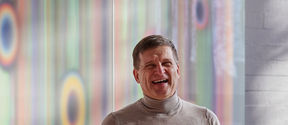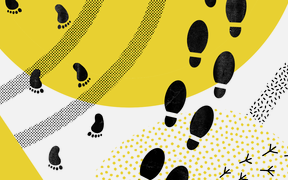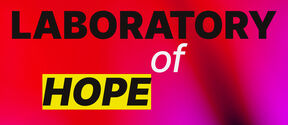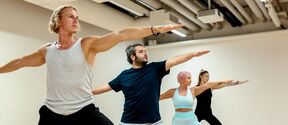Maija Taka: I want to plan the route in advance
'I have a background in geographical research, and I always have to have a map. I need to know where I'm going and why, at what pace and with whom.'

There have been many significant changes. One is the extremely dramatic turnover of key personnel. In 2013 we had already seen many professors recently retire, and, from the age profile of our remaining professors, we knew that there would continue to be many more retirements within the next years. Now we have some 67-68 professors who are in the Aalto tenure track system. Only 13 of these are, like me, professors who were hired into the old “TKK” (Helsinki University of Technology) system.
Roughly 30% of our new professors are international, and a similar portion is female. Back in 2010, when Aalto started, the percentages of international and female professors were both closer to 5%. The new professors also bring new enthusiasm and fields of research that hadn’t previously existed in Finland.
I feel uniquely privileged that I’ve even had the opportunity to be a dean here at Aalto. I have a lot of gratitude towards Tuula Teeri and Ilkka Niemelä. As I think back, ten years ago they took a risk. I think Finnish people have always viewed me with some reservation. I speak, read and even teach in Finnish, but my language is not perfect by any means. I think that it was quite a common attitude that we can’t really have someone in the leadership who is not fully fluent in the language. At least it used to be like this – it seems to be changing now.
If people speak clearly and in textbook Finnish, then I follow well. But if neighbours or colleagues start using slang or different dialects then it can be difficult. Humour that involves playing with language is also difficult to follow.

I don’t want to communicate that I necessarily feel relieved to be leaving the position, but as dean there are always challenges to deal with. I will be relieved when these details end. I remember my very first day as dean in July 2013. The very first email that I received was from a professor complaining about his salary. There are always these kinds of issues, misunderstandings or inconsistent expectations to address.
Now, I’m content to let our new dean, Kari Tammi, start implementing his own vision and style of leadership. I’m very confident and happy to pass along my responsibilities as the school starts this new era.
But, I’m not sure if I have a very clear picture of what my own role is going to be in three or six months from now. Ten years is a long time to have been largely away from traditional professor duties. I’m not very far from the mandatory retirement age of 68. Therefore, I don’t even know what new things are possible to initiate. It’s a unique situation, but I’m confident that we’ll figure it out.
I do feel that our sense of community is not as strong as I have experienced in other places. When we organize different events, a graduation ceremony for students for instance, only a third of students even bother to come. A couple of weeks ago we had the doctoral conferment ceremony, and the actual number of doctors that came to be conferred was a very small percentage of the total. It's maybe only one in three.
In a similar way, I am now struggling with academic advising appointments with bachelor students. I start by sending an email and suggesting a meeting time. Before Covid, 80 to 90 % of the students would come to appointments when I set them up this way. Now, when I try the same approach, it’s 20 % that show up in person or online. I don’t know why. Even the students that I’ve discussed with don’t have a good explanation about this change.
We’re building a great campus in Otaniemi, but it’s not always clear how we can best use this remarkable place for students, staff members and stakeholders. I don’t know what actions should be taken, but if I had a magic wand, I would use one wish to enliven our sense of community.

“How do you make such delicious vegetarian food? My teenage children want to eat more vegetables, but I just don’t know how to prepare them.” This was a comment that one of my Aalto colleagues made as he was leaving our home after a meal of plant-based Mexican food. My wife, Lily, who is Mexican and only prepares plant-based food, gave a few simple tips on the spot.
That simple exchange sparked an idea. If we are convinced that a plant-based diet can be good for both our health and the environment, working together and showing people is better than only providing information.
The old Design Factory had an ideal kitchen that allowed us to do both teaching and preparing food together. The first group was made up mostly of service staff members from the School of Engineering. Subsequent groups combined international professors and researchers. Sometimes even with their partners. My wife and I soon saw that it was something people just liked doing together. It was fun, relaxing, and we could meet people in a non-work-related situation. It seemed to be a very good way to build community for the new professors and their family members – even children in some cases. On one occasion I contacted one of our student guilds, and the guild took the initiative to arrange a group.
Each group typically has 12-17 persons, and, in total, there have been six or seven groups. A typical group comes for three evenings to hear about different food related topics and prepare different plant-based Mexican dishes. On one of the three evenings, Dr Mika Jalava from the Water and Environmental Engineering group joins us and gives a talk on the crucial topic of how our food choices relate to sustainability. Last year in August we organized a special lesson for the PMT (President’s Management Team).
The recently completed academic year was overly full, but I expect we will start with a new group in the autumn. The new Design Factory kitchen is even bigger and better equipped.
I have three children and two grandchildren. Each their families lives close to Helsinki and they form a big part of my life. We also have two dogs that always need care. I view them as permanent children.
My wife and I also enjoy cooking together at home. She’s more of the cook and I’m more of the baker. That means she uses the stove top and I use the oven. We like to experiment with different ways of cooking – in the last three months I have been experimenting with sourdough breads and buns using different flours. It appeals to my scientific nature.
I do things with my hands as well. My wife has a sewing machine that she lets me use. I made, for example, the dress that my wife wore to the recent doctoral conferment gala. Otherwise, I’ve made dresses for my wife and my daughter, and one for my granddaughter as well.
I remember when I was young teenager, my mother was always insistent in saying, “Even though you are a boy, you should learn to cook, sew and use the washing machine.” My mom was a wise woman.

'I have a background in geographical research, and I always have to have a map. I need to know where I'm going and why, at what pace and with whom.'

'It’s really important to me personally that we value each other. I believe in that very strongly. The way you treat other people determines the culture of an organisation. We accomplish a lot more when we have respectful interactions.'

'I came with a lot of energy and a lot of willingness to do different things and integrate, but also, the winter was coming. Even though I like new experiences, it was not always easy to arrive in the moment when every day was a little bit darker.'
Inspired by the saying that you should walk a mile in someone’s shoes to understand them, the ‘Walk in my shoes’ series aims to share some of the experiences, thoughts, perspectives and challenges faced by members of the Aalto community.



